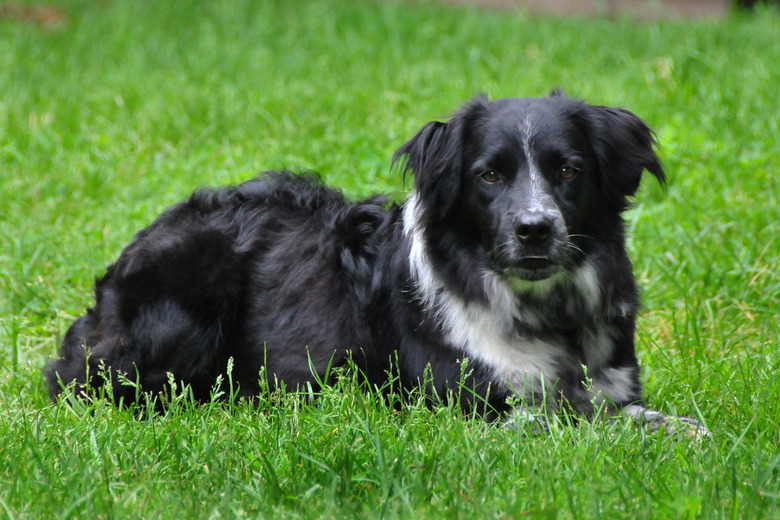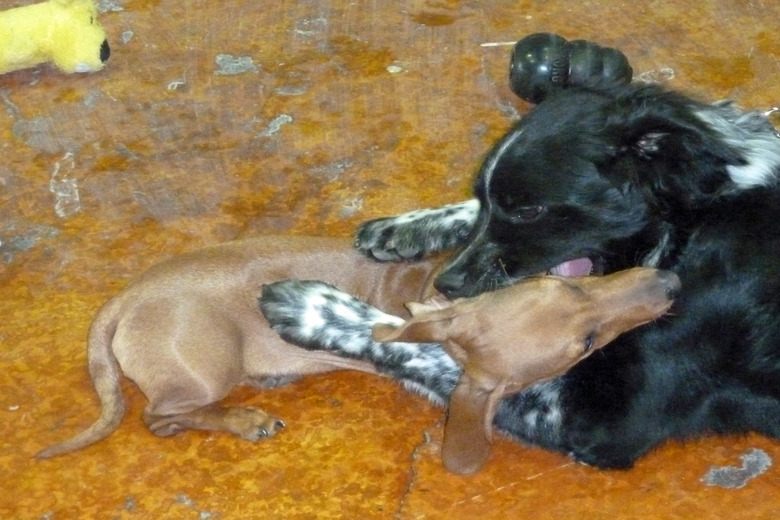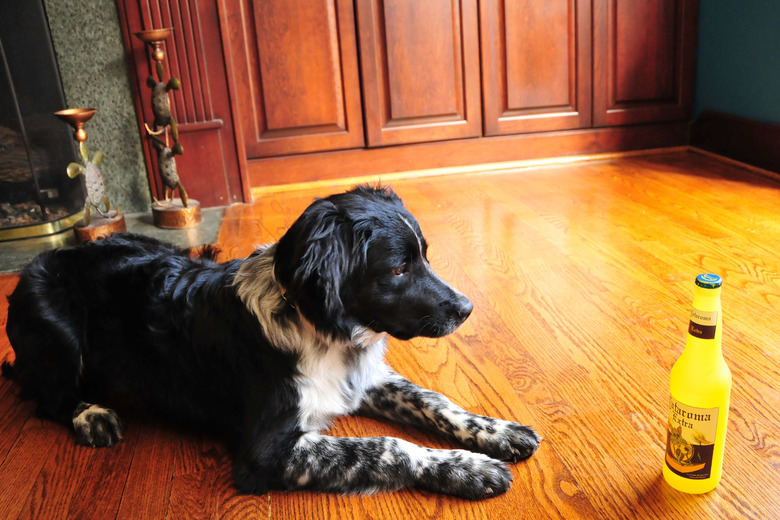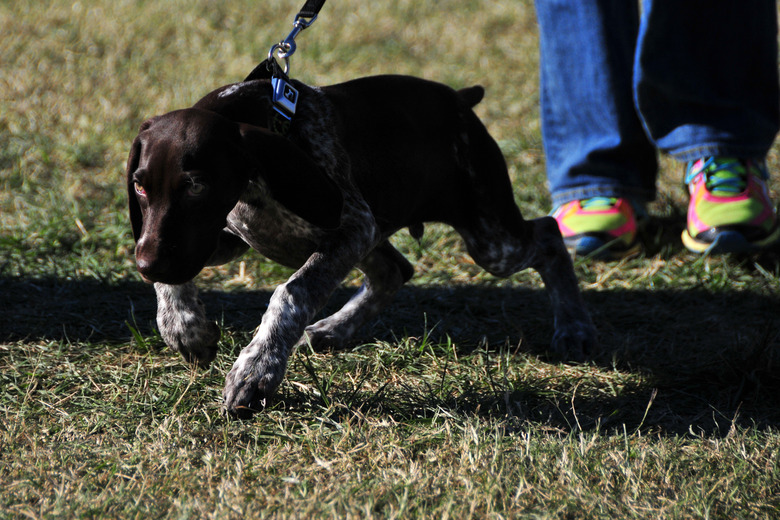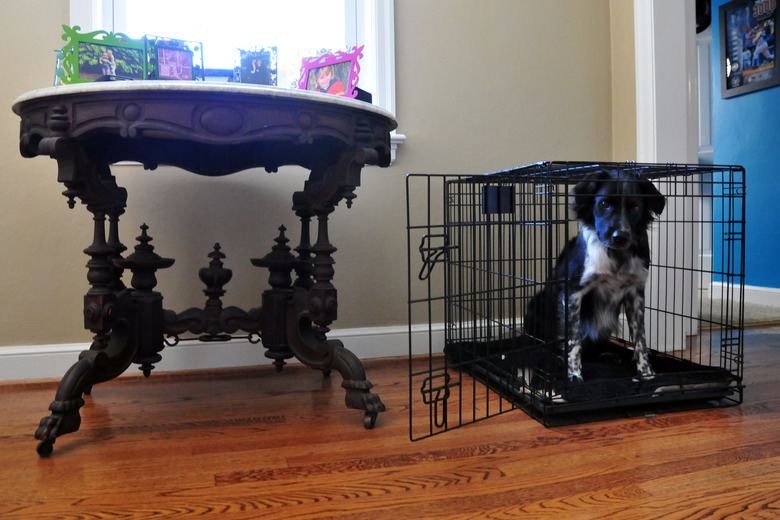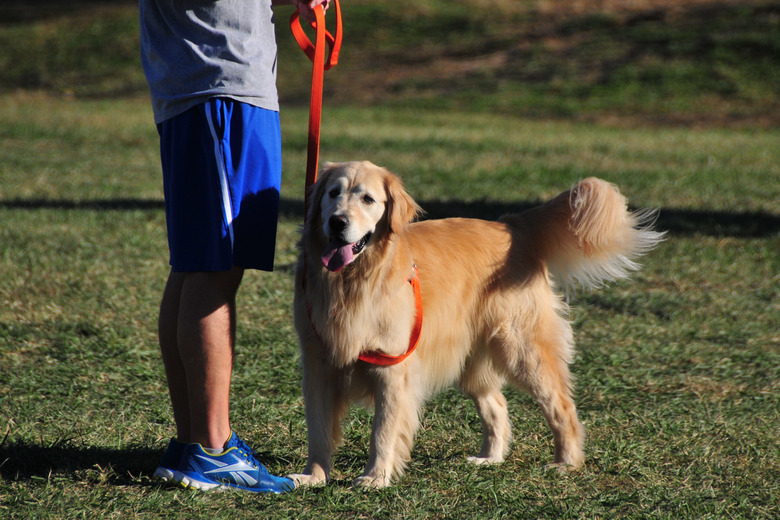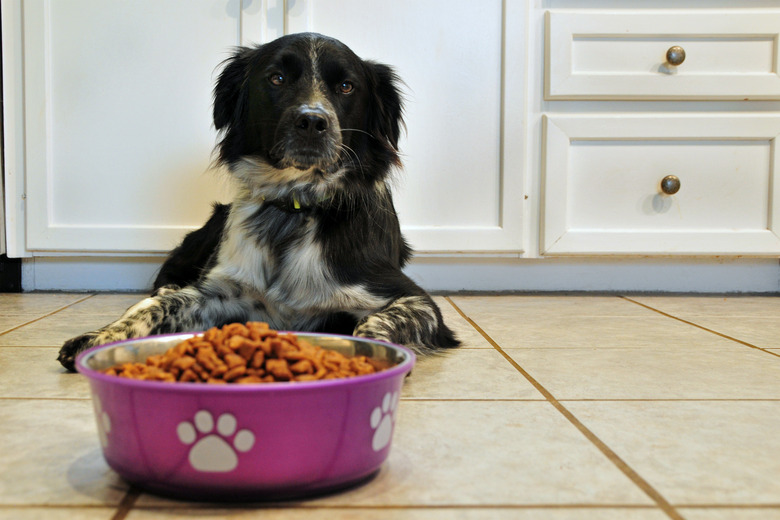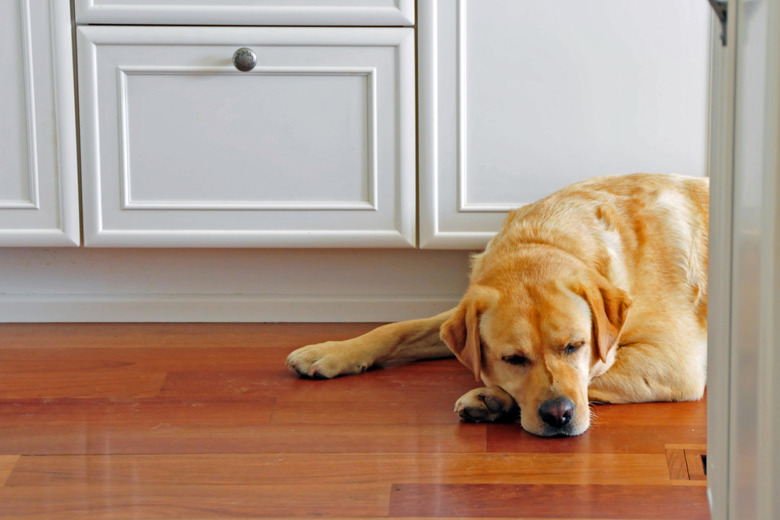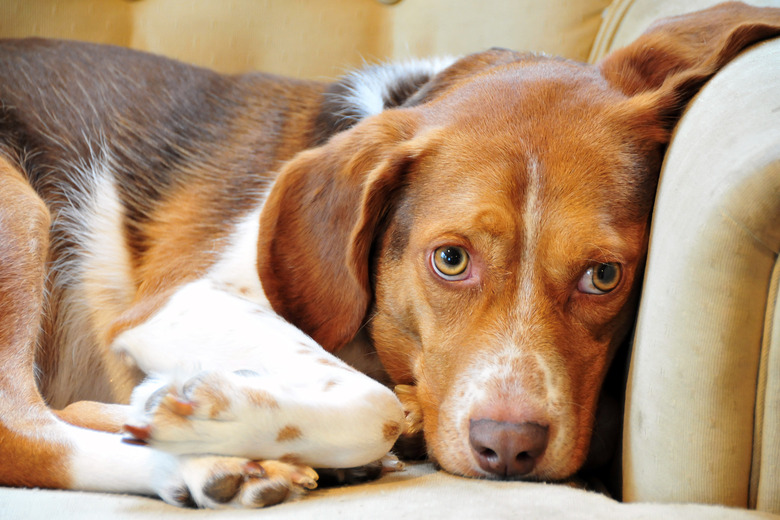How To Train Your Dog Not To Bite
Tip
Reward your dog for being calm in new or scary situations. Also offer him a treat when he behaves around new people.
If your dog is highly prone to biting, muzzle him when he is around strangers or in public.
Adult dogs and puppies tend to bite for a variety of reasons. Puppies, for example, go through a teething process, and biting helps alleviate the pain. On the other hand, biting in an elderly dog is a sign of illness. Whatever the reason, take steps to discourage and prevent this dangerous habit. When training your dog not to bite, it is important that you remain calm, consistent and always in control. After all, you must set a good example when attempting to stamp out aggressive behavior in your canine friend.
Puppies
Step 1
Socialize your puppy at an early age. This is important because it introduces your dog to other people and animals. As your puppy becomes more familiar with new experiences, it is less likely to exhibit fear and bite as an adult. Allow the pup to interact with all sorts of people: children, men, women and, of course, mail carriers.
Step 2
Provide your puppy with plenty of chew toys. This is especially important for puppies going through the teething process. At this stage in her life, the pup is growing its adult teeth, which is causing its gums and mouth to hurt. A chew toy provides a healthy alternative to your hand or ankle.
Step 3
Yelp in pain whenever your puppy bites you. This mimics the behavior the puppy's mother would exhibit if she were bitten. It is a warning to the puppy that he has gone too far and must stop. After you yelp, stop playing with the puppy and ignore him for a while.
Step 4
Place the puppy in her crate for a few minutes if all else seems to fail. You can also lightly tap her on the nose after she bites. You should scold her, but do not yell at your puppy, as this will only instill fear. A frightened dog or puppy is much more prone to biting.
Adult Dogs
Step 1
Yelp or call out in pain immediately after the dog bites you. Then growl and chase the dog away from you. This not only lets the dog know he has done something wrong, it asserts your dominance.
Step 2
Set up a routine where the dog is fed and watered at specific times of the day and only after he has come when called and behaved properly. Do not feed him if he is acting aggressively. Command him to sit and wait patiently. Continue this process and remain consistent to assert yourself as the alpha male in the pack.
Step 3
Set up an area specifically for your dog to spend the night. Do not allow him to sleep on your bed or in the bedroom.
Step 4
Stop playing games with an adult dog that encourage aggressive behavior, such as wrestling or tug of war. Otherwise, if your dog becomes excited or aggressive during play, ignore him until he calms down.
